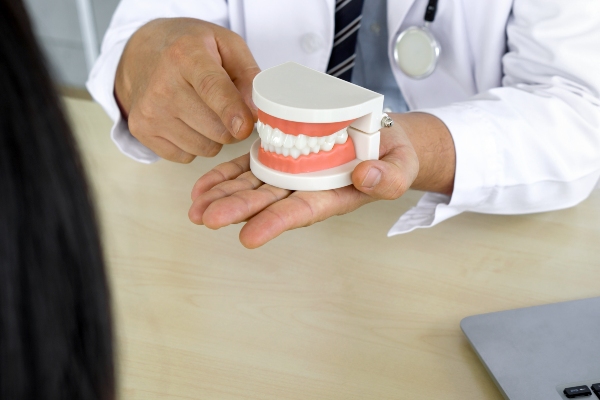What Are the Different Types of Tooth Pain?

Toothaches, like other physical pain, can be very discomforting but they indicate problems with the body that need immediate attention. The root cause of the pain can vary in that of the case of tooth pain. So, it is important to correctly identify the problem. Here are three main causes of toothaches.
Pain due to sensitive teeth
If there is pain when eating something cold or hot, it may be because the teeth have become sensitive. With sensitivity, the duration and intensity of the pain is important as well. If the pain is intense, occurs constantly, and lasts for a long duration, then the issue may be serious. Sensitivity in teeth is usually because of the following:
Sensitivity to Cold Foods
Decaying teeth
Decaying of the outermost layer of a tooth, otherwise known as the enamel, leaves teeth vulnerable to irritation. Without the enamel, air and water enter the inner layers and irritate the nerves present there. A small sized decay of the enamel can be fixed with a filling.
Worn-out teeth
Teeth can get worn-out from brushing them too hard. The effect of aggressive brushing is similar to tooth decay, as the enamel layer gets brushed away leaving the inner layers exposed to air and water. A desensitizing toothpaste can reduce the pain. However, depending on the condition of the teeth, the dentist may recommend a filling or crown.
Cracked teeth
If there is intense pain during chewing food, there may be a cracked tooth. The sensitivity here is also because of missing enamel. The options for fixing the issue will depend on the crack. Usually, dentists recommend a crown for the cracked tooth.
Sensitivity to hot foods
Sensitivity to hot foods and drinks, and many times to cold foods as well, is usually because bacteria is irritating the nerve of the tooth. In this case, the dentist will probably recommend a more expensive treatment such as a root canal or extraction.
Consistent and inconsistent aches
This is the pain that we usually experience in our teeth. The cause will depend on the type of pain. In a self-diagnosis of the pain, note if its continuous or subsides at times and its severity. If there is light but constant pain accompanied by swelling, then the cause may be some food particles stuck in the tooth gaps. In this case, flossing my get rid of the pain. If the pain is constant, then there may be a bigger problem. Abscessed teeth create constant pain because they might be infected all of the way to the root.
Intense pain
Inconsistent but sharp pain is a sign of a severe problem. The pain may come from damage, wear and tear, or tooth decay. Teeth with fillings can also produce a jabbing pain if the filling gets displaced. In the case of throbbing intense pain, the best course of action is to immediately consult a dentist.
Leaving minor issues untreated, can lead to severe problems that may require an extraction or a root canal. To avoid serious issues and the pain associated with them, its best to visit the dentist regularly (at least twice a year) and follow recommendations for maintaining healthy teeth and gums.
Request an appointment here: https://hemetdentalcenter.com or call Hemet Dental Center: Brian Stiewel DDS, INC. at (951) 707-4366 for an appointment in our Hemet office.
Check out what others are saying about our services on Yelp: Read our Yelp reviews.
Recent Posts
Tooth extraction can relieve pain and discomfort, remove immediate threats to oral health, and open the door to more functional tooth replacements. While we strive to preserve your natural teeth for as long as possible, sometimes extractions are necessary. With the help of a general dentist, learn why there is no need to fear having…
When you hear you need a tooth extraction, it is common to worry about having a gap in your smile for the rest of your life. Fortunately, a general dentist can provide a tooth replacement to restore your smile. From dental implants to flipper teeth, there are many replacement options after a tooth extraction.Tooth extraction…
Many conditions can result in a tooth extraction, all of which boil down to the state of the tooth. There are two main types: simple and surgical. Take a closer look at each option and why we may recommend them.The goal of any general dentist is to preserve the natural teeth for as long as…
A visit to a cosmetic dentist is the first step in improving your smile. These dental professionals offer a range of services designed to enhance the appearance of teeth, gums, and bite alignment. Whether you want to remove stains, reshape teeth, or create a more symmetrical smile, the process starts with a thorough consultation and…


